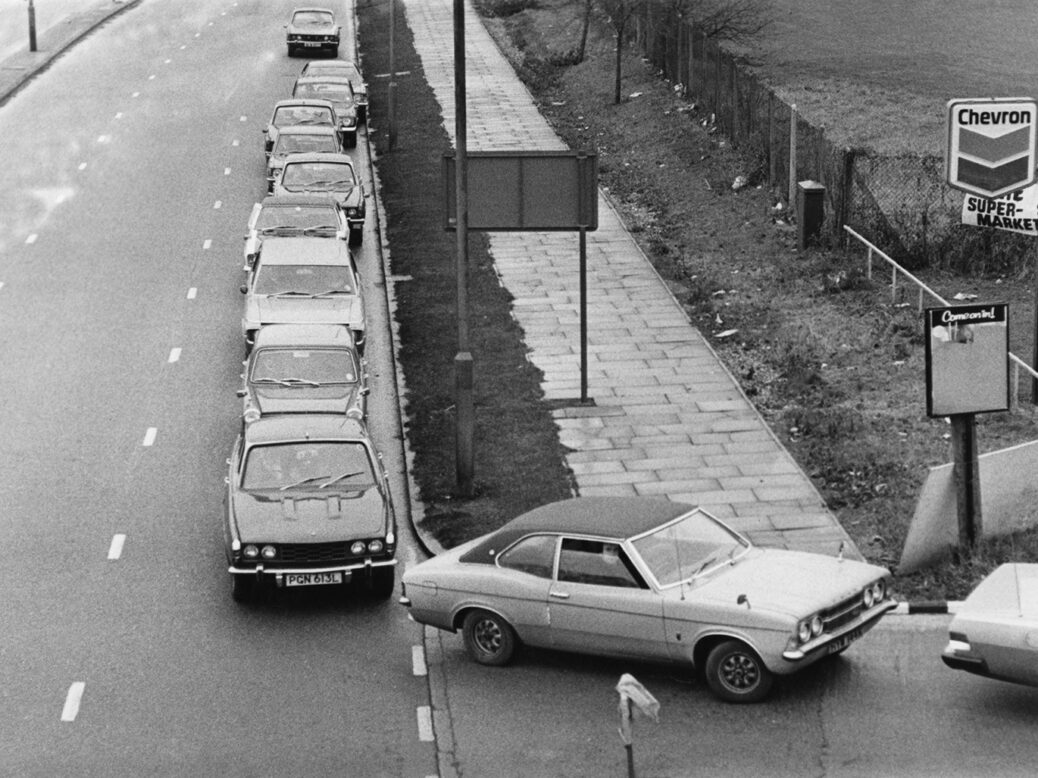
For a few months in the winter of 1973, the British government imposed a temporary maximum speed limit of 50 miles per hour on every major road and motorway in the UK. A similar policy had just been imposed in the US, and for the same reasons: to reduce the amount of petrol motorists use, the crude oil needed to produce it, and the power of petrostates on the world stage.
Today, as a Russia made rich by oil carries out a widespread and systemic attack on the civilians of Ukraine, governments are increasingly suggesting that their own citizens shoulder costs or inconveniences to help defund the regime of Vladimir Putin. Boris Johnson told Telegraph readers this week that “there will be tough times ahead… weaning the world off Russian oil and gas… will be difficult”, while Joe Biden has characterised inflationary pressure as “Putin’s price hike”.
The International Energy Agency has encouraged consumers to turn down their thermostats by 1°C to reduce dependence on Russian gas, while Adair Turner, the former director-general of the Confederation of British Industry, recently told a conference that British motorists could have an “immediate impact” on Putin’s finances by driving at 55mph.
Does this really impact the Kremlin’s bottom line? Jim Watson, professor of energy policy and director of the UCL Institute for Sustainable Resources, said that while reducing demand for fuels will “make some difference… it’ll be quite small”, because “only some of that demand is connected to Russia”: according to government figures, Russia accounts for 8 per cent of oil imports and less than 4 per cent of gas.
The other, bigger problem with asking consumers to support Ukraine is that it isn’t that the Kremlin is currently enjoying a bonanza of oil and gas profits – Urals crude is now trading at a discount against Brent crude of almost 30 per cent – but that Western countries have had decades to “wean the world off Russian oil and gas” (not to mention the oil and gas of Saudi Arabia, Iran and other autocracies), and they haven’t bothered.
When the Foreign Secretary, Liz Truss, was asked about how the war would affect the cost of living recently, she told the BBC that “fighting for freedom and democracy has a very high cost for us” but that the UK was “prepared to take an economic hit”. However, the economic hit of defunding Putin could have been spread out over many years, had Conservative governments not imposed what Watson calls an “effective moratorium” on onshore wind and large-scale solar power – the cheapest sources of energy, which could now be supplying the UK at half the price of gas.
One of David Cameron’s concessions to the right of his party in 2013 was a commitment to, as a senior Tory source told the Sun in 2013, “get rid of all the green crap”. “There was a concerted national campaign, by campaign groups, to get planning decisions [for wind and solar] thrown out,” recalled Watson, “and then the government withdrew those technologies from the subsidy scheme.” Liz Truss was among the 292 Conservative MPs who also voted to abolish the feed-in tariff, which subsidised smaller-scale renewable generation, in 2011.
Households in the UK would already be using much less gas had governments not mismanaged and then axed a series of insulation schemes – the 2012 Green Deal, which was taken up by fewer than 1,800 households, the Green Deal Home Improvement Fund, and the Green Homes Grant, which lasted all of six months – that have failed to upgrade the UK’s woefully inefficient housing stock. Boris Johnson’s main policy intervention on insulation has been to encourage the Home Office to arrest people who campaign for it and “insulate them snugly in prison where they belong”.
“Given this crisis,” said Watson, “now would be the time when I think people would understand that there’s a need to spend public money to invest in the housing stock.” The public should understand, too, that these measures had cost them a great deal of money even before Russia invaded Ukraine: an analysis by Carbon Brief in January found that removing environmental measures had already added £2.5bn to energy bills.
This only covered direct energy costs, however. In many other areas of policy, this government and its predecessors have actively maintained the UK’s dependence on oil and gas, freezing fuel duty for 12 years in a row, encouraging people to take more short-haul flights, and failing to regulate property developers who build houses that can only be reached by car.
As Watson pointed out, very large numbers of households in the UK will have no choice but to reduce their fuel use next month, when the energy price cap lifts once more: “I think people are going be pretty acutely aware of [fuel prices] already.” If people in the UK aren’t able to reduce the money they give to murderous petrostates, it is not the fault of anyone abroad but their own government, which has left them with no better option.
[See also: Switching off Russian gas could put the planet on the road to a green economy]






